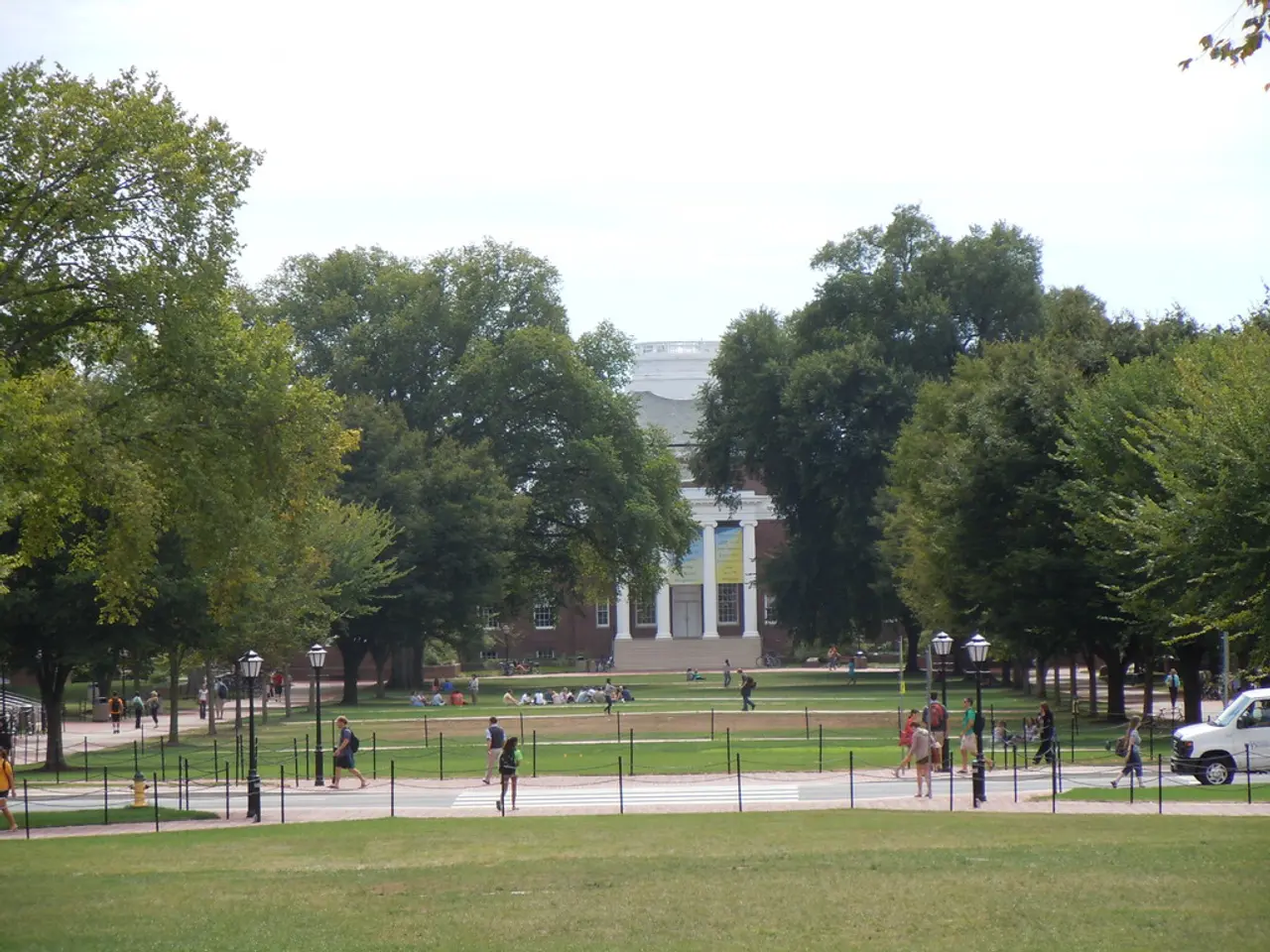Student Loan Forgiveness under IBR temporarily halted during system revision, yet not revoked altogether amidst changes
The U.S. Department of Education has temporarily halted processing student loan forgiveness for borrowers enrolled in the Income-Based Repayment (IBR) plan. This pause is due to ongoing system updates aimed at improving the tracking of qualifying payments under various income-driven repayment plans, including IBR [1][2].
The system upgrade is necessary to ensure the Department's internal infrastructure can accurately apply forgiveness criteria before processing further discharges. No specific timeframe has been provided for when forgiveness will resume, but the Department has indicated that IBR forgiveness will restart once the necessary system updates and recalculations are complete [2][4].
During this pause, borrowers are encouraged to continue making their monthly payments as scheduled to maintain their progress towards loan forgiveness. Borrowers who have already made the required number of payments will still be eligible for forgiveness once the Department resumes operations [3].
It's important to note that the pause does not affect the eligibility of borrowers or result in penalties for delays outside their control. Borrowers approaching the 20- or 25-year forgiveness mark should not switch to alternative plans during the pause, as doing so may reset their progress [4].
The recent legal challenges have not impacted the IBR plan, as it is codified in federal law and cannot be overturned by executive action or litigation alone [5]. However, these challenges have prompted the Department to halt forgiveness processing for other income-driven repayment plans like SAVE, leading to the placement of loans in forbearance with interest resuming on August 1, 2025 [1][3][4].
Interestingly, the forbearance time will not count towards forgiveness programs such as IBR or Public Service Loan Forgiveness (PSLF) [1][3][4].
Maya Lewis, a senior policy analyst at the National Student Debt Coalition, stated that the pause underscores the urgent need for a modern, borrower-friendly loan servicing infrastructure [6]. Advocates are calling on the Department of Education to accelerate its system improvements and enhance transparency regarding timelines and borrower expectations.
Borrowers are encouraged to monitor updates from the Department of Education and loan servicers for announcements regarding the resumption of forgiveness processing. Once the system updates are complete, any overpayments made during the pause will be retroactively refunded [4].
In summary, processing of IBR forgiveness is currently on hold with no defined end date, pending technical and legal adjustments. The Department emphasizes that legal IBR discharges will begin again once the correct payment totals can be established [2][4].
References:
- NPR
- U.S. Department of Education
- Forbes
- CNBC
- Brookings Institution
- National Student Debt Coalition
- Maya Lewis, a senior policy analyst at the National Student Debt Coalition, highlights the necessity of a modern, borrower-friendly loan servicing infrastructure due to the current halt in processing Income-Based Repayment (IBR) forgiveness.
- Borrowers should consider the crucial role infrastructure improvements play in education-and-self-development as they closely follow updates from the Department of Education and loan servicers regarding the resumption of IBR forgiveness processing.
- In Africa, where logistics, infrastructure, and finance are essential to the import and distribution of goods, reforming student loan servicing infrastructure could serve as a model for more efficient systems and promote self-development.




